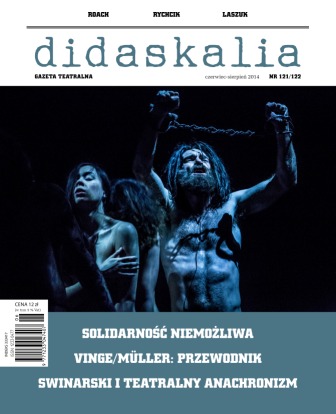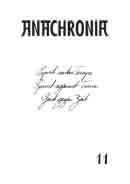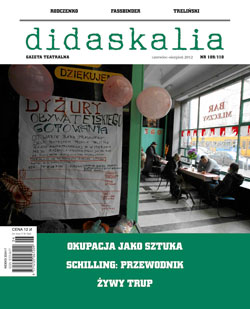
Historia wymyślana
A review of Sebastian Majewski's monodrama created with Lidia Duda – The Question of Victory (Narodowy Stary Theater in Krakow, premiere: 27.03.2014). A member of the Polish Communist Party and later dignitary of the Polish United Workers' Party, concealed behind a mask of consecutive figures, draws viewers into the tangled web of recent history. The incoherent and episodic narrative she spins based on associations prompts us to reflect upon whether or not it is objectively possible to call anyone a hero. Laś points out the major impact of this minimalist production, and how its effect changed when it was transferred from the building on Józefa Street (where the premiere was held) to the cellars of the Stary Theater (where the play is presently performed).
More...

